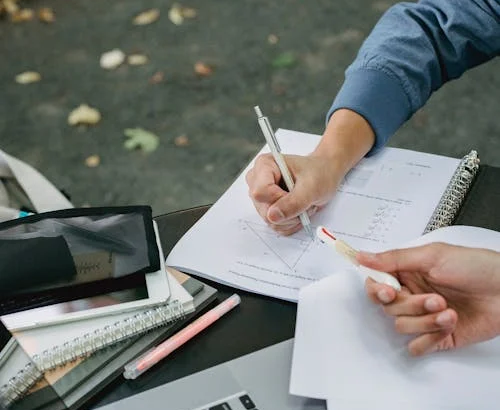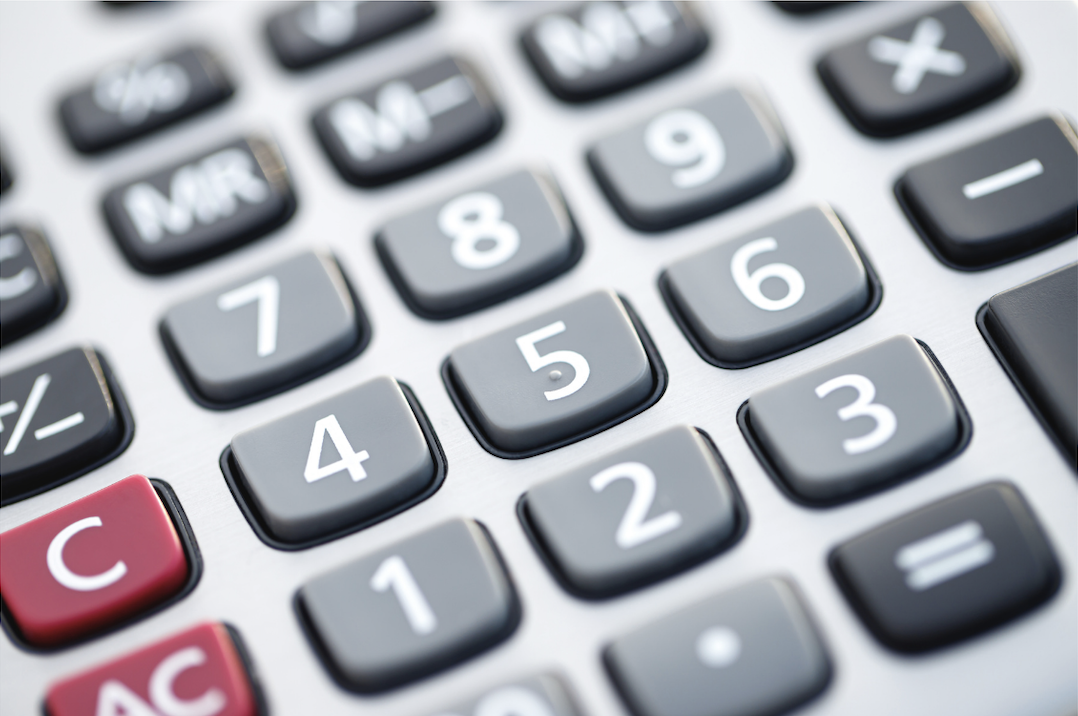How to get a 7 in IB Maths

Nailing in your IB Maths exams is not a walk in the park. You might be wondering how to get a 7 in IB Maths and join the club of those lucky ones who achieved the maximum score.
To be fair, passing your IB Maths course with flying colours isn’t about luck. It is about hard work, skills, and a clear idea of what to do in the final IB exams.
While it’s on you to find a motivation for keeping your nose to the grindstone, we are happy to give you tips on what you need to do to increase your chance of success.
What is IB Maths?
Before diving into specifics, let’s take a moment to understand what IB Maths is and why excelling in it requires a strategic approach.
IB Maths is the mathematics course within the International Baccalaureate Diploma Programme. There are actually two IB Maths options available to cater to various students and their future plans:
- Analysis & Approaches (AA) focuses on a deeper theoretical understanding of mathematics, with a strong emphasis on calculus, algebra, and problem-solving.
- Applications & Interpretations (AI) emphasizes the practical applications of mathematics in various fields. These include, for example, science, finance, and social sciences.
The specific IB Maths covered will depend both on the chosen course level (SL or HL) and option (AA or AI).
How Hard is it to Get a 7 in IB Maths?
IB Diploma Programme is generally a rigorous academic undertaking, so you shouldn’t expect top scores to come easily. This is especially true for Mathematics. With the average Maths grade falling below the IBDP’s average (4.0 compared to 4.6), it’s one of the hardest subjects to score high in. Yet, achieving a good grade, even a 7, is not impossible – with the right mindset and effective revision strategies, of course.
In fact, 7.3% of graduates, on average, managed to get a 7 in Maths in 2023. Is this a lot? Well, when compared to the average percentage of students scoring 7s across all subjects (8.9%), it’s clear that Maths presents a greater challenge. But there’s more to the story. The difficulty can vary depending on the specific Maths option you choose.
For instance, Mathematics Applications and Interpretations proved to be significantly tougher to score the maximum score. Only 3.7% of Higher Level (HL) and 3.1% of Standard Level (SL) students achieved the top mark. In contrast, Mathematics Analysis and Approaches was considerably more manageable, with 21.4% of HL students and 6.3% of SL students scoring a 7.
How to Prepare for the IB Math Exam
Succeeding in IB Math isn’t just about blind memorisation. It’s about mastering key concepts, developing strong problem-solving skills, and having a solid plan for the final exams. The following tips will give you the knowledge and strategies you need to maximise your potential and get a 7 in IB Maths.
Find Your Weak Points
Knowing your weaknesses and strengths is important to narrow down the list of things you should focus on. You don’t have much time on your hands and you cannot spread it thinly across every single aspect. The best approach here is to be clear on your weaknesses and work toward minimising them.

Analysing your grades from your mock IB Maths exams, or practice papers will give you an idea of the areas where you are the weakest. At the same time, you can use additional questions taken from past exam papers to keep testing yourself and figure out gaps in your knowledge. Are there any questions you don’t know at all? Or skills that you are applying too slowly?
One more effective approach to identifying your strong suits and weak points is enlisting professional help. A Maths tutor can quickly point out the issues that keep you from getting a maximum IB math score as well as help come up with a solid plan for filling those gaps.
Get a Study Routine, and Stick To It
Laying out a plan for your preparation for the International Baccalaureate Maths is half a battle. Start your plan by going over each topic in the syllabus. Designate enough time to learn, repeat, and practice every one of them. Naturally, there might be topics you struggle with. It’s important to identify those to give yourself more time to make sure you understand them.
Once your plan is done, adhere to it!
Remember, you need to start studying diligently from the start. Don’t wait until later – many IB Maths problems stem from a lack of initial understanding. The longer you leave a gap in your knowledge, the harder it becomes to catch up. So, do not complete a topic and move on until you are sure you really get it.
Don’t think twice about calling in help. It could be a member of the family particularly strong at Maths, a peer or one of our IB Tutors. Our IB tutors are often IB examiners, and so know exactly how to help.
No matter how tempting it is to have an extra day off from learning, or skip topics you think you know well enough, you should stick to your course of action.
Book free trial with our certified IB Maths teachers today
100 % of tutors are certified teachers and examiners
Understand the Essentials
Understanding Maths is more than learning formulas by heart (although this is also vital). If you make sure you understand the essential Mathematical concepts, your learning will be able to build onto it with higher level, more complex problems. In a sense, the concept is the thread that holds individual pieces of information together as well as prevents losing or forgetting them.
Learning formulas will only get you so far, not far enough to guarantee the maximum score in IB Maths. The trick is that your exam may (and most certainly will) feature questions you are not entirely familiar with. One of the main reasons why an average score in IB Maths is only 4.0 is that students struggle to complete tasks when they are different from what they are used to. However, those who manage to wrap their head around essentials are more prepared for unexpected things.
How to ensure that you know your way around all those important Maths topics? Don’t be afraid to ask your teacher to explain the things you don’t quite understand. Plus, it’s worth exploring the internet to try and find materials that present Maths from a different perspective. Finally, taking on a tutor is an effective way to solve your IB Maths problems, especially if you want one-to-one help, and to get yourself back on track.
Practice with Past Papers
They say that practice makes perfect. When it comes to IB Maths, it is as true as it gets. You need to understand the material, but without being able to put it to use in a variety of contexts you won’t go far.
The best way to ensure this much-needed practice is to use past papers. A quick search on the Internet should give you a few helpful resources, like this one.
As we have already said, IB Maths exams tend to feature questions that you haven’t come across before. Past papers can give you an idea of such questions, as well as their format and content. When you know what to expect, nothing can catch you off guard.
On the other hand, practising with past papers can significantly improve your solving time. If you mark the time you need to answer questions, you can figure out the areas where you’re lagging behind. You can even give yourself a mock exam to see how you’re faring.
Our tutors can also help look at your past papers with you, mark them, help you see where you went wrong and give you strategies to avoid that in the future.
Organise Your Own Study Group
Working with a group of friends is less tedious and is definitely more fun. On top of that, it is an excellent opportunity for sharing experience and knowledge. A fellow Maths student can provide their own perspective on the things you find hard to comprehend. Of course, you can always ask your teacher about areas where you are all getting stuck, but asking your friend is surely less intimidating.
Doing mock exams in your study group is also more beneficial than doing them on your own. After taking such an exam, you can discuss what was wrong and what was right, whose approach was most efficient, etc.
Last but not least, a healthy portion of friendly competition can give you the motivation to outperform yourself.
Final Thoughts on How to Get a 7 in IB Maths
7 points in IB Maths is not a pie-in-the-sky dream. Yes, it is hard to achieve but not at all impossible. Everything depends on you and how hard you’re willing to work toward your goal.
There are a few ways to meet your challenge head-on. You can go it alone and work for the exam on your own. Or you can join forces with your peers who, just like you, want to work out how to get a 7 in IB Maths. Or you can also be more persistent with asking questions in the classroom. After all, it is your teacher’s job to make things clear.
The truth is that all of these approaches work when it comes to how to get a 7 in IB Maths, but they come with limitations. The most serious one is lack of time. Luckily, there is one more path worth trying. An experienced tutor can ensure an individual approach that is tailored to your needs.
At TutorsPlus, our tutors are highly experienced with the types of questions you can get on your IB Maths exam, so you won’t have to scout the internet for past papers or buy questionbanks.
Want to try IB Maths tuition out? Then go ahead and contact TutorsPlus at 022 731 8148 or . You are only one step away from securing the top mark in IB Maths, don’t hesitate to take it!
By Sara Lloyd
Sara has been an education consultant for TutorsPlus for 15 years, and is an expert on international IB education. She is also a parent of two lively children.















